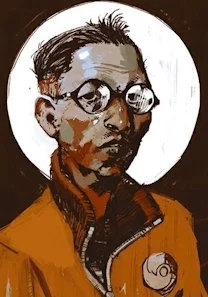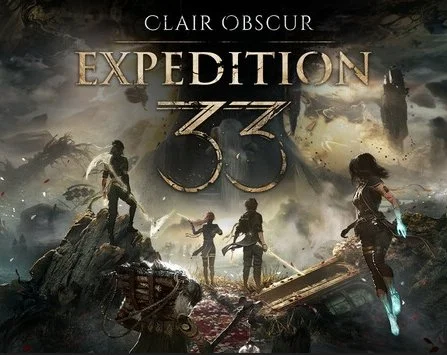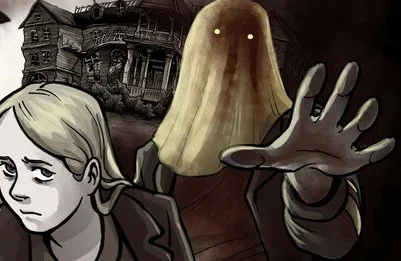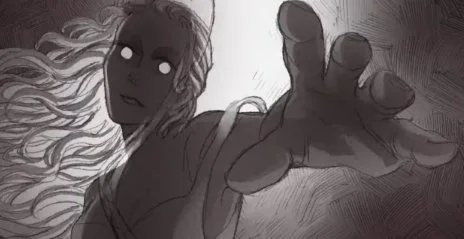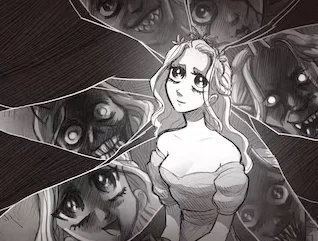So Bad It’s Good: Cognitive Dissonance and the Enjoyment of Broken Games
For decades, critics and players have wrestled with a peculiar paradox in entertainment: some of the most beloved works are also some of the most obviously flawed. Film scholars have long accepted the category of the so bad it is good movie, where awkward acting, clumsy editing, and baffling creative decisions generate an unexpected form of joy. In the last decade, videogames have built their own parallel tradition. Titles such as Deadly Premonition, Killer7, and Devil’s Third have acquired fiercely loyal fanbases despite receiving lukewarm or even hostile mainstream reviews. Wanted: Dead, released in 2023, is the most recent and vivid example of this phenomenon. Many players and critics who acknowledge its rough combat, incoherent plot, and uneven presentation also insist that it is one of the most memorable and strangely lovable games of its year.
This tension creates the perfect case study for a psychological lens known as cognitive dissonance. How can a work be technically poor yet emotionally meaningful? Why do players sometimes feel more attached to a broken game than to a polished one? And what mental strategies allow them to hold two contradictory ideas at once: that a game is bad and that they enjoy it? By examining Wanted: Dead and its kin through cognitive dissonance theory, we can understand why flawed games so often inspire cult devotion.
What Cognitive Dissonance Means
Cognitive dissonance is a term introduced by psychologist Leon Festinger in the late 1950s. It describes the discomfort people feel when they hold two thoughts that contradict each other. That discomfort motivates people to reduce the contradiction, usually by reframing one of the thoughts. When someone invests time, money, or effort into an activity that does not live up to expectations, they often adjust their beliefs to protect their self-image. If something they chose turns out to be a disappointment, they may reframe the disappointing elements as misunderstood virtues or find alternative explanations for their decision.
This does not imply dishonesty. It is a natural mental process that helps preserve a sense of coherence and competence. In entertainment, cognitive dissonance plays a surprisingly large role in how audiences interpret flawed works. When someone spends dozens of hours on a game that seems structurally broken, they look for meaning in the experience to justify that investment. That search for meaning can become its own emotional reward, especially when the flaws contain a kind of accidental charm.
Wanted: Dead and the Experience of Contradiction
Wanted: Dead is practically engineered to trigger dissonance. Its surface-level faults are easy to list. Reviews point out stiff facial animations, inconsistent voice acting, difficulty spikes that feel arbitrary, sparse checkpoints, repetitive encounters, and a narrative so fragmented that basic plot threads appear and vanish without explanation. The presentation often looks dated, the tone shifts from bleak violence to absurd comedy without warning, and the game occasionally crashes or stutters.
Yet many players praise it with unusual intensity. Critics describe it as a beautiful mess or the best worst game in years. Kotaku called it one of the most memorable titles of 2023, even while acknowledging that it is janky, buggy, and often confusing. Destructoid called it a modern atrocity and then immediately followed that phrase with a declaration of love. These reactions are not sarcastic. They reflect a genuine fondness for the experience as a whole, but also a mental reconciliation between admiration and frustration.
In other words, players confront two competing thoughts. Wanted: Dead can be described as poorly designed by modern standards. At the same time, it is oddly compelling and emotionally engaging. Cognitive dissonance emerges from that conflict, and players reduce it by reframing the flaws as intentional quirks or nostalgic callbacks.
Reframing Flaws as Features
One of the main ways players resolve dissonance is by turning an apparent weakness into a source of authenticity or charm. Wanted: Dead makes this easy because its jank often resembles the eccentric style of sixth generation console games from the early 2000s. Many players grew up with slightly clunky titles that mixed ambition with technical limitations. The awkward pacing and strange tonal shifts of Wanted: Dead therefore feel familiar. Instead of interpreting the roughness as incompetence, some players interpret it as a deliberate aesthetic choice inspired by a bygone era.
This reinterpretation is powerful. When a player concludes that the flaws are intentional, or at least consistent with a creative vision, the flaws become enjoyable rather than bothersome. Critics who defend Wanted: Dead often describe it as sincere, heartfelt, or unfiltered. These words are not about polish. They describe attitude. They suggest that players believe the developers created something personal and expressive, imperfections included.
Another strategy for resolving dissonance is effort justification. This occurs when players invest significant time or emotional energy into adapting to a difficult or messy game. The challenge becomes part of the appeal. The frustration itself becomes a badge of honor, and overcoming it creates a stronger attachment to the game than a smoother experience might have produced. Difficult retro titles, Soulslike games, and harsh arcade classics rely on a similar dynamic. Wanted: Dead pushes players to repeat long encounters, memorize layouts, and adapt to unpredictable enemies. As long as those efforts produce moments of satisfaction, the earlier irritation is reframed as part of the journey.
Players also reinterpret jank through the lens of humor. Awkward voice acting and nonsensical dialogue become running jokes. Dreamlike scenes, random digressions, or illogical character motivations become memes. Communities form around these quirks and turn them into shared references. Once the community embraces the flaws, they no longer signify failure. They signify belonging.
Comparison to Other Cult Classics
Wanted: Dead is not the first game to benefit from this psychological alchemy. Deadly Premonition, often cited as one of the most technically troubled games to reach cult status, converted its awkward controls, stiff animations, and surreal dialogue into a charm that many players found irresistible. Fans argue that its jank is part of its atmosphere. Without the clumsy systems, they say, the game would not feel as uncanny or as personal. Here again, cognitive dissonance allows players to reconcile affection with criticism.
Killer7 followed a similar trajectory. On release, critics complained about its stilted combat, strange plot structure, and impenetrable symbolism. Over time, those same qualities came to represent artistic boldness and auteur identity. The difficulty of understanding Killer7 became part of its appeal, not an obstacle to it.
Devil’s Third, despite being widely panned, still generated pockets of defenders who insisted it was misunderstood. They reframed flaws as experiments, personal style, or even deliberate rule breaking. Once those reframes take hold, the flaws support the game’s identity rather than undermine it.
Wanted: Dead fits comfortably in this lineage. Players who appreciate its vision often link it to these earlier titles, and the association strengthens the argument that its brokenness is a form of expression.
Nostalgia and the Sixth Generation Aesthetic
Another important ingredient in the enjoyment of flawed games is nostalgia. Nostalgia reshapes memory and allows players to project feelings from the past onto new experiences. The sixth generation of consoles produced many mid-budget action games that were ambitious but uneven. They were often messy, tonally confused, or technically unstable, yet they were also earnest and full of personality. Wanted: Dead intentionally references that era, from its linear level design to its hyper violent executions and oddball mini games. Players who grew up during that era are especially receptive to its imperfections because those imperfections feel comforting.
Nostalgia works hand in hand with cognitive dissonance. When a player already wants to enjoy something because it resembles a cherished memory, they are more willing to reinterpret flaws positively. The flaws become reminders of the past rather than obstacles to the present.
Simply Put: How We Learn to Love a Mess
Wanted: Dead shows that the line between bad and brilliant is not fixed. It depends on how players interpret the experience and how they resolve the tension between their expectations and their emotions. Cognitive dissonance explains why flawed games can inspire fierce devotion. When contradiction arises, people search for meaning, and that search can lead to deeper engagement. Flaws become quirks, rough edges become signatures, and a chaotic experience becomes a memorable one.
In the end, the enjoyment of a broken game is not irrational. It is a testament to how people build relationships with media. Imperfection can feel more human than polish, and messiness can feel more honest than precision. Wanted: Dead stands out because it gives players something to wrestle with, and that struggle becomes part of the pleasure.
Sources:
Wanted: Dead | Wanted: Dead Wiki | Fandom
Review: Devil's Third (Wii U) - Nintendojo Nintendojo
Wanted: Dead - Review — Analog Stick Gaming
Wanted: Dead Review - An Off-Kilter Killer
Wanted: Dead - Ninja Whyden? (Review)
Wanted: Dead Is 2023's Jankiest Game, And I Love It - Kotaku

